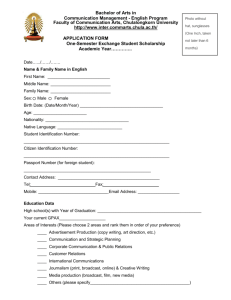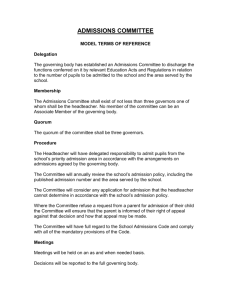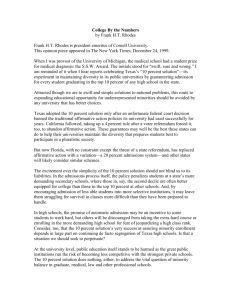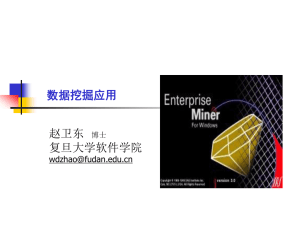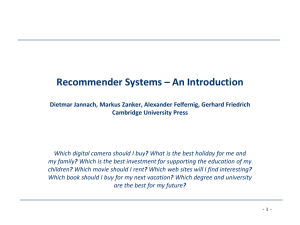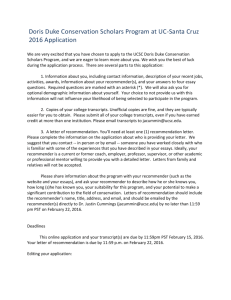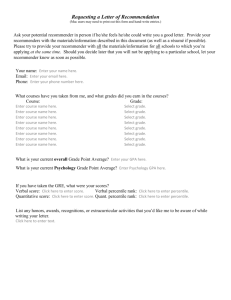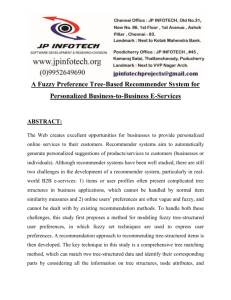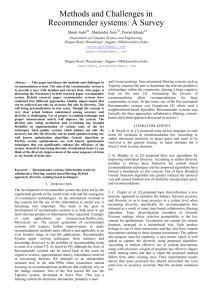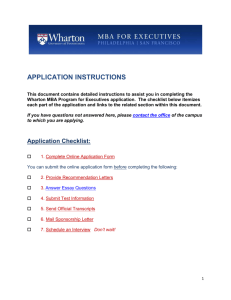Ways to Use a Rec Letter
advertisement
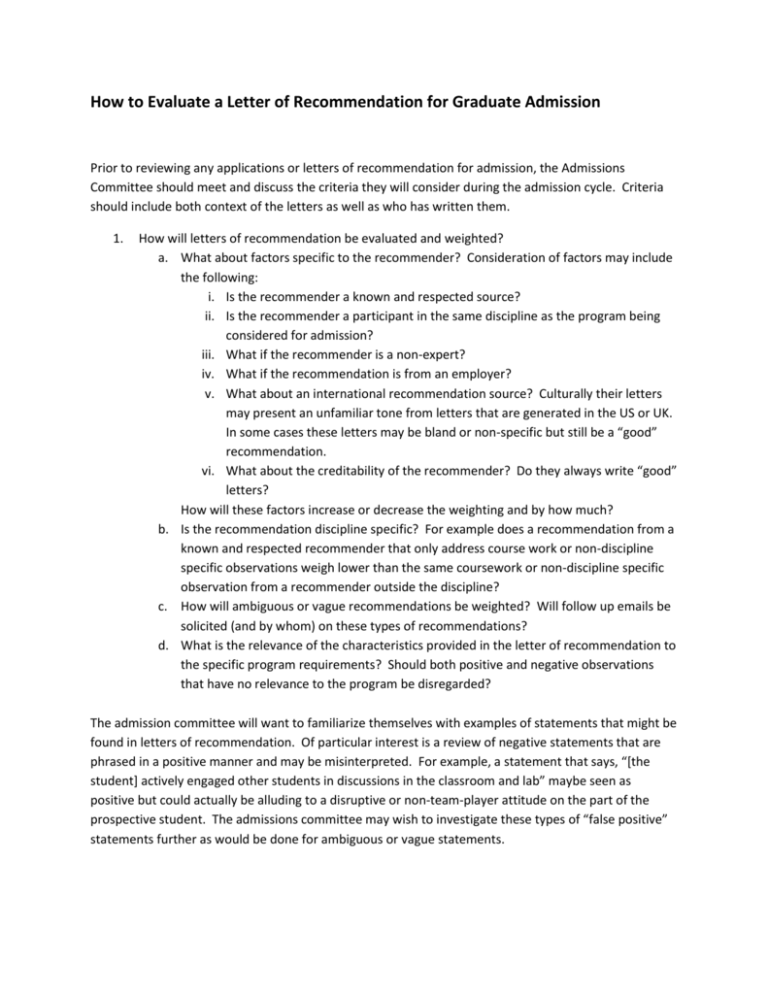
How to Evaluate a Letter of Recommendation for Graduate Admission Prior to reviewing any applications or letters of recommendation for admission, the Admissions Committee should meet and discuss the criteria they will consider during the admission cycle. Criteria should include both context of the letters as well as who has written them. 1. How will letters of recommendation be evaluated and weighted? a. What about factors specific to the recommender? Consideration of factors may include the following: i. Is the recommender a known and respected source? ii. Is the recommender a participant in the same discipline as the program being considered for admission? iii. What if the recommender is a non-expert? iv. What if the recommendation is from an employer? v. What about an international recommendation source? Culturally their letters may present an unfamiliar tone from letters that are generated in the US or UK. In some cases these letters may be bland or non-specific but still be a “good” recommendation. vi. What about the creditability of the recommender? Do they always write “good” letters? How will these factors increase or decrease the weighting and by how much? b. Is the recommendation discipline specific? For example does a recommendation from a known and respected recommender that only address course work or non-discipline specific observations weigh lower than the same coursework or non-discipline specific observation from a recommender outside the discipline? c. How will ambiguous or vague recommendations be weighted? Will follow up emails be solicited (and by whom) on these types of recommendations? d. What is the relevance of the characteristics provided in the letter of recommendation to the specific program requirements? Should both positive and negative observations that have no relevance to the program be disregarded? The admission committee will want to familiarize themselves with examples of statements that might be found in letters of recommendation. Of particular interest is a review of negative statements that are phrased in a positive manner and may be misinterpreted. For example, a statement that says, “[the student] actively engaged other students in discussions in the classroom and lab” maybe seen as positive but could actually be alluding to a disruptive or non-team-player attitude on the part of the prospective student. The admissions committee may wish to investigate these types of “false positive” statements further as would be done for ambiguous or vague statements. Admissions committees should consider how their requests for recommendations are configured. It is considered a best practice to have specific question requirements of the recommender in addition to a free form letter. Here are some samples of questions the committee may wish to include in their Letters of Recommendation configuration: 1. If you had a graduate program in [your discipline] would you admit this student? Why or why not? 2. What are the student’s greatest strengths? 3. What are the student’s greatest weaknesses? 4. Are there any parts of the student’s academic record that are not reflective of their ability? 5. Can this student communicative effectively in English? 6. How would you rank this student compared to all other student’s you have taught or worked with: a. One of the best student’s ever b. Certainly in the top 10% c. A good student who is above average d. An average student e. A student who is below average f. Not someone I would recommend for graduate study 7. Does this student work effectively in a team setting? Admissions committees should establish specific questions for themselves in order to organize their individual rankings effectively. Some examples of types of questions might include the following: Using a ranking scale of 1 – 10 (with 1 indicating low capacity and 10 the maximum capacity imaginable), please rank the prospective student. 1. Their academic ability ___________ 2. How well they fit with our program _____________ 3. Their fit with your lab or area of research ____________ 4. Your willingness (or ability) to fund them _____________ Financial Concerns: It is important that admissions committees distinguish the difference between students who are admissible and those whom they wish to fund. It is possible to offer admission to all admissible students (those whom you feel are a good fit with your program and meet the criteria established to be successful in your program) before making final funding decisions. An offer of admission is not the same as an offer of funding even if it may be assumed as typical for your discipline. Determining how many students will be admitted when you are unsure of the funding that will be available is a question the admissions committee should determine early. It is fine to be vague about funding during recruitment and offers of admission; it is not okay to promise funding without fully being prepared to actually provide it. Philosophical Concerns: Admissions committees and how they choose their prospective students from all applicants should be a confidential process but it should also be transparent. The committee should make sure that the criteria they will use to determine admissibility is clear and concise. These criteria should be clearly outlined on the website, application instructions, and in the program description guide. All applicants should be able to determine what criteria they are being judged on.
